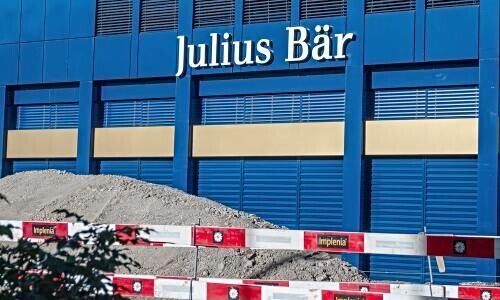Julius Baer Net Profit Halves, CEO Exits
The Zurich-based private bank also confirmed it would exit the private debt business following the collapse of Signa.
Julius Baer's net profit attributable to shareholders fell 52 percent to 454 million Swiss francs ($526 million) in 2023, according to the bank's annual results, much of it due to a sharp increase in provisions including a full writedown of three loans that were related to a European conglomerate active in commercial real estate and luxury retail. This is likely the collapsed Signa business empire of Austrian entrepreneur Rene Benko.
Operating income fell when the impact of the credit loss was excluded as higher interest rates were offset by the stronger franc and falling client trading activity.
Strong Inflows
Net new money remained strong, coming in at 12.5 billion francs, a result achieved despite continued client deleveraging.
The bank indicated it would exit its private debt business and start an «orderly» wind-down of its remaining private debt book, which comprised 0.8 billion or 2 percent of all its lending.
Management Change
By mutual agreement with the board of directors, CEO Philipp Rickenbacher stepped down, being replaced ad interim with Nic Dreckmann, current deputy CEO and chief operating officer.
In addition, David Nicol, chair of the governance and risk committee meeting of the board of directors, would not stand for re-election at the 2024 AGM.
Strong Capital Ratios
The bank reported that its CET1 capital ratio rose to 14.6 percent in 2023, up from 14 percent a year earlier, and that its total capital ratio was at 24 percent against 2022's 21.7 percent. Both were significantly above regulatory requirements and «group floors». The liquidity coverage ratio improved as well, rising to 291 percent last year, up from 233 percent a year earlier.
The board of directors will propose an unchanged dividend of 2.60 francs a share.
Private Debt Exit
The bank also stated it would exit its private debt business and start an «orderly» wind-down of its remaining private debt book, which comprised 0.8 billion or 2 percent of all its lending.
As a result, it will refocus lending activities on mortgage and Lombard lending solutions and also «take this opportunity» to strengthen the bank's credit framework.



























